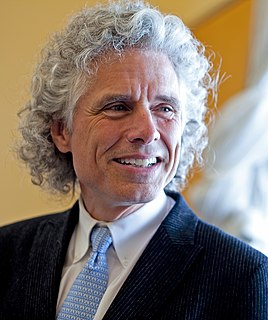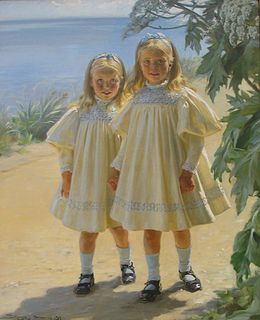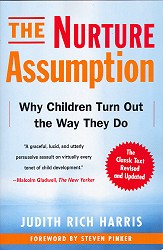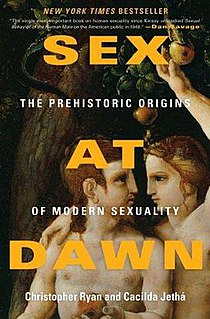
Evolutionary psychology is a theoretical approach in the social and natural sciences that examines psychological structure from a modern evolutionary perspective. It seeks to identify which human psychological traits are evolved adaptations – that is, the functional products of natural selection or sexual selection in human evolution. Adaptationist thinking about physiological mechanisms, such as the heart, lungs, and immune system, is common in evolutionary biology. Some evolutionary psychologists apply the same thinking to psychology, arguing that the modularity of mind is similar to that of the body and with different modular adaptations serving different functions. These evolutionary psychologists argue that much of human behavior is the output of psychological adaptations that evolved to solve recurrent problems in human ancestral environments.
John Philippe Rushton was a Canadian psychologist and author. He taught at the University of Western Ontario and became known to the general public during the 1980s and 1990s for research on race and intelligence, race and crime, and other purported racial correlations.

The nature versus nurture debate involves whether human behavior is determined by the environment, either prenatal or during a person's life, or by a person's genes. The alliterative expression "nature and nurture" in English has been in use since at least the Elizabethan period and goes back to medieval French.

Steven Arthur Pinker is a Canadian-American cognitive psychologist, linguist, and popular science author. He is an advocate of evolutionary psychology and the computational theory of mind.

Birth order refers to the order a child is born in their family; first-born and second-born are examples. Birth order is often believed to have a profound and lasting effect on psychological development. This assertion has been repeatedly challenged. Recent research has consistently found that earlier born children score slightly higher on average on measures of intelligence, but has found zero, or almost zero, robust effect of birth order on personality. Nevertheless, the notion that birth-order significantly influences personality continues to have a strong presence in pop psychology and popular culture.

Sociobiology: The New Synthesis is a book by the biologist E. O. Wilson. It helped start the sociobiology debate, one of the great scientific controversies in biology of the 20th century and part of the wider debate about evolutionary psychology and the modern synthesis of evolutionary biology. Wilson popularized the term "sociobiology" as an attempt to explain the evolutionary mechanics behind social behaviour such as altruism, aggression, and the nurturing of the young. It formed a position within the long-running nature versus nurture debate. The fundamental principle guiding sociobiology is that an organism's evolutionary success is measured by the extent to which its genes are represented in the next generation.

The Blank Slate: The Modern Denial of Human Nature is a best-selling 2002 book by the cognitive psychologist Steven Pinker, in which the author makes a case against tabula rasa models in the social sciences, arguing that human behavior is substantially shaped by evolutionary psychological adaptations. The book was nominated for the 2003 Aventis Prizes and was a finalist for the Pulitzer Prize.
Judith Rich Harris was an American psychology researcher and the author of The Nurture Assumption, a book criticizing the belief that parents are the most important factor in child development, and presenting evidence which contradicts that belief.

The Nurture Assumption: Why Children Turn Out the Way They Do is a 1998 book by the psychologist Judith Rich Harris. Originally published 1998 by the Free Press, which published a revised edition in 2009. The book was a 1999 Pulitzer Prize finalist.
Evolutionary developmental psychology (EDP) is a research paradigm that applies the basic principles of evolution by natural selection, to understand the development of human behavior and cognition. It involves the study of both the genetic and environmental mechanisms that underlie the development of social and cognitive competencies, as well as the epigenetic processes that adapt these competencies to local conditions.

The Adapted Mind: Evolutionary Psychology and the Generation of Culture is a 1992 book edited by the anthropologists Jerome H. Barkow and John Tooby and the psychologist Leda Cosmides. First published by Oxford University Press, it is widely considered the foundational text of evolutionary psychology (EP), and outlines Cosmides and Tooby's integration of concepts from evolutionary biology and cognitive psychology, as well as many other concepts that would become important in adaptationist research.

Race, Evolution, and Behavior: A Life History Perspective is a book by Canadian psychologist and author J. Philippe Rushton. Rushton was a professor of psychology at the University of Western Ontario for many years, and the head of the controversial Pioneer Fund. The first unabridged edition of the book came out in 1995, and the third, latest unabridged edition came out in 2000; abridged versions were also distributed.
Frank Jones Sulloway is an American psychologist. He is a visiting scholar at the Institute of Personality and Social Research at the University of California, Berkeley and a visiting professor in the Department of Psychology. After finishing secondary school at Moses Brown School in Providence, Rhode Island, Sulloway studied at Harvard College and later earned a PhD in the history of science at Harvard. He was a visiting scholar at the Massachusetts Institute of Technology.
Darwinian literary studies is a branch of literary criticism that studies literature in the context of evolution by means of natural selection, including gene-culture coevolution. It represents an emerging trend of neo-Darwinian thought in intellectual disciplines beyond those traditionally considered as evolutionary biology: evolutionary psychology, evolutionary anthropology, behavioral ecology, evolutionary developmental psychology, cognitive psychology, affective neuroscience, behavioural genetics, evolutionary epistemology, and other such disciplines.

Gad Saad is a Lebanese-Canadian evolutionary psychologist and professor in the John Molson School of Business at Concordia University who is known for applying evolutionary psychology to marketing and consumer behaviour. He also writes a blog for Psychology Today, and hosts a YouTube channel titled "The Saad Truth".
Evolutionary psychology seeks to identify and understand human psychological traits that have evolved in much the same way as biological traits, through adaptation to environmental cues. Furthermore, it tends toward viewing the vast majority of psychological traits, certainly the most important ones, as the result of past adaptions, which has generated significant controversy and criticism from competing fields. These criticisms include disputes about the testability of evolutionary hypotheses, cognitive assumptions such as massive modularity, vagueness stemming from assumptions about the environment that leads to evolutionary adaptation, the importance of non-genetic and non-adaptive explanations, as well as political and ethical issues in the field itself.

A Natural History of Rape: Biological Bases of Sexual Coercion is a 2000 book by the biologist Randy Thornhill and the anthropologist Craig T. Palmer, in which the authors argue that evolutionary psychology can account for rape among human beings, maintain that rape is either a behavioral adaptation or a byproduct of adaptive traits such as sexual desire and aggressiveness, and make proposals for preventing rape. They also criticize the assumption that there is a connection between what is naturally selected and what is morally right or wrong, which they refer to as the "naturalistic fallacy", and the idea, popularized by the feminist author Susan Brownmiller in Against Our Will (1975), that rape is an expression of male domination and is not sexually motivated.

Sex at Dawn: The Prehistoric Origins of Modern Sexuality is a 2010 book about the evolution of monogamy in humans and human mating systems by Christopher Ryan and Cacilda Jethá. In opposition to what the authors see as the "standard narrative" of human sexual evolution, they contend that having multiple sexual partners was common and accepted in the environment of evolutionary adaptedness. The authors contend that mobile, self-contained groups of hunter-gatherers were the norm for humans before agriculture led to high population density. Before agriculture, according to the authors, sex was relatively promiscuous and paternity was not a concern. This dynamic is similar to the mating system of bonobos. According to the book, sexual interactions strengthened the bond of trust in the groups. Far from causing jealousy, social equilibrium and reciprocal obligation were strengthened by playful sexual interactions.

Waking Up: A Guide to Spirituality Without Religion is a 2014 book by Sam Harris that discusses a wide range of topics including secular spirituality, the illusion of the self, psychedelics, and meditation. He attempts to show that a certain form of spirituality is integral to understanding the nature of the mind. In late September 2014, the book reached #5 on the New York Times Non-Fiction Best Sellers list.

Social Bonding and Nurture Kinship: Compatibility between Cultural and Biological Approaches is a book on human kinship and social behavior by Maximilian Holland, published in 2012. The work synthesizes the perspectives of evolutionary biology, psychology and sociocultural anthropology towards understanding human social bonding and cooperative behavior. It presents a theoretical treatment that many consider to have resolved longstanding questions about the proper place of genetic connections in human kinship and social relations, and a synthesis that "should inspire more nuanced ventures in applying Darwinian approaches to sociocultural anthropology". The book has been called "A landmark in the field of evolutionary biology" which "gets to the heart of the matter concerning the contentious relationship between kinship categories, genetic relatedness and the prediction of behavior", "places genetic determinism in the correct perspective" and serves as "a shining example of what can be achieved when excellent scholars engage fully across disciplinary boundaries."














